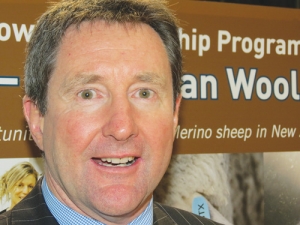The Government has set a target to increase the value of New Zealand's food sector exports from $25 billion to $60b, meaning there will be an additional 50,000 jobs in the primary sector by 2025.
What must we do to encourage NZ's best and brightest to look to the primary sector for a career?
According to John Brackenridge, the head of Merino New Zealand and the leader of the chief executives' agri-bootcamp scheme that takes industry high-flyers to the United States, the current messaging aimed at attracting young people into the agri sector is unappealing and the wrong people are involved in that messaging.
Brackenridge believes NZ is missing the point in this area and is "stuck in a paradigm of traditional education and traditional approaches".
NZ's primary sector future is in the global food value chain (GFVC). Ours is strong in seafood, kiwifruit, apples, red meat, honey, health extracts, dairy ingredients and products, arable food, horticulture and finished supermarket products.
The value of products and services increases the closer you get to the final consumer. A key component of every value chain is highly skilled and knowledgeable people to manage each part of a business' value chain from paddock or ocean to plate.
For the agri sector to meet the ambitious government growth target our future scientists, farmers, entrepreneurs, economists, marketers and bankers need to form direct links to markets and to learn skills based on real life experiences and opportunities.
So it makes sense to target training and promotion of careers in the sector to get the required capacity for economic growth in the GFVC.
A great presentation of the agri sector's exciting future as a career path took place at Massey University's Institute of Agriculture and Environment ag students' dinner and awards night late last month.
This attracted 250 people – a record number – from all aspects of the industry keen to reward and promote the agri sector's prospects. Meanwhile, the wide array of high-achieving students on display shows how the 'best and brightest' of the country's young people are choosing careers in the primary sector.
"It reflects the excitement in the ag industry these days and the acceptance that we need more highly capable, smart employees," says Massey's head of Ag Peter Kemp.
If the calibre of students Massey and Lincoln universities are attracting is a sign, then perhaps Brackenridge and the wider primary sector can rest easier.



















